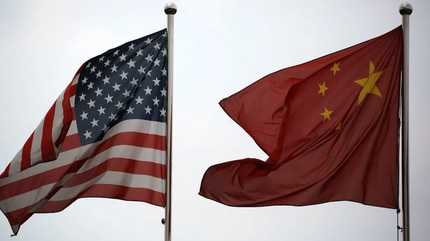
NEW YORK, Sept. 16 (Xinhua) -- American veteran diplomats have made a united call for revitalizing U.S.-China relations at a reception celebrating the 74th anniversary of the founding of the People's Republic of China.
Speaking at the event held Wednesday evening, 80-year-old Robert Hormats, former under secretary of State for Economic Growth, Energy, and the Environment, lamented the status quo.
"Unfortunately, this is not one of those good times. This is a very difficult time and it's a very sad time for all of us who believe in the relationship," he said.
"But it is not a moment where we can simply give up and simply do nothing," said Hormats, highlighting the necessity of dialogues based on "candor" over "anger" in dealing with "very difficult issues" between the two countries.
"There's a difference in a discussion based on candor, and a discussion based on anger...I think the tone that we sometimes hear, which is sort of an angry tone when you see this in the press, amongst some politicians, is not the kind of thing that's going to get us anywhere," he said.
Daniel Russel, vice president for International Security and Diplomacy at the Asia Society Policy Institute (ASPI), echoed this sentiment of hope.
Russel, who most recently served as the Assistant Secretary of State for East Asian and Pacific Affairs, said that the world expects great powers to work together to solve great challenges.
"The world is too small for China and the United States to be enemies...to fail to work together to cooperate... Let's rededicate ourselves to the task of forging the kind of relationship that genuinely serves the best interests of the American people, the Chinese people and the international community," he said.
Jim Yong Kim, former president of the World Bank Group, stresses the importance and tangible effects of U.S.-China collaboration for global development, particularly in Africa.
"I hope that it can get back to the stage where when it was at its best, because if we do, the implications are not just for China, for the United States, (but) for Africa, for Latin America, (and) for everyone," he said.




